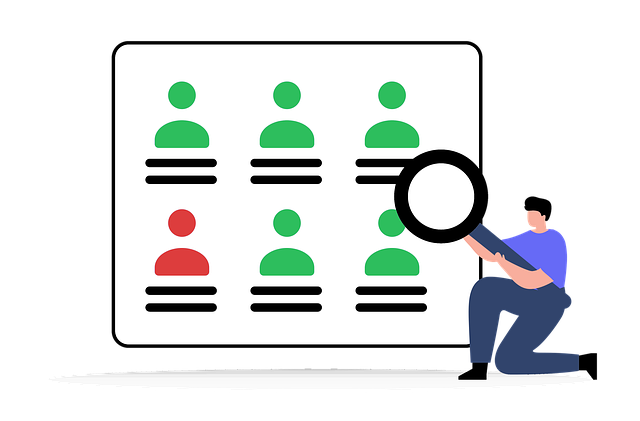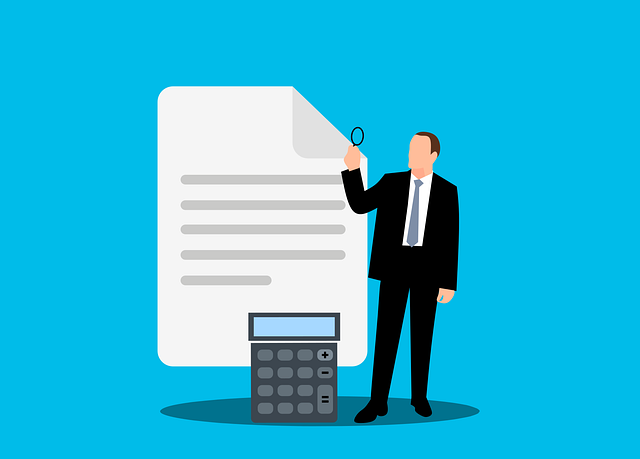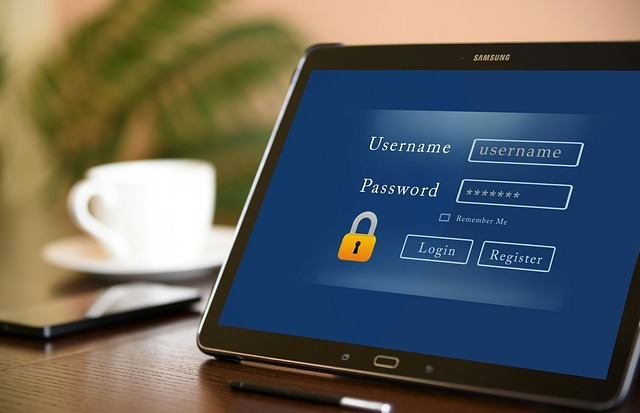Accounting firms face significant cyber risks, necessitating a robust cybersecurity strategy. This involves regular cybersecurity audits by Certified Public Accountants (CPAs) with IT expertise to identify weaknesses and ensure compliance. Key measures include multi-layered defense against threats, employee training, and advanced data encryption. These audits, coupled with staff awareness and advanced tools like firewalls, safeguard client financial data in the digital era.
In today’s digital landscape, accounting firms face unique cybersecurity risks. With sensitive financial data at stake, understanding and mitigating these threats is paramount for Certified Public Accountants (CPAs). This article explores essential IT security strategies and tools designed to safeguard digital assets. From regular cybersecurity audits to robust access controls, encryption methods, and employee training, discover the comprehensive approach needed to protect against evolving cyber threats and ensure business continuity.
- Understanding the Unique Cybersecurity Risks Facing Accounting Firms
- The Role of Regular Cybersecurity Audits for CPAs
- Essential Tools for Fortifying Digital Asset Protection
- Implementing Access Controls and User Authentication Measures
- Data Encryption: A Strong Defense Against Unauthorized Access
- Training and Awareness: Empowering Employees in Cybersecurity
Understanding the Unique Cybersecurity Risks Facing Accounting Firms

Accounting firms face unique cybersecurity risks due to their handling of sensitive financial data and strict regulatory requirements. As trusted guardians of financial information, they are prime targets for cybercriminals seeking to exploit vulnerabilities in their systems. A comprehensive cybersecurity strategy is essential to safeguard digital assets, protect client confidentiality, and ensure business continuity.
A thorough cybersecurity audit, conducted by Certified Public Accountants (CPAs) with expertise in IT, is a critical first step. This process involves evaluating the firm’s security protocols, identifying potential weaknesses, and implementing compliance-level security measures tailored to their operations. Protecting against threats such as phishing attacks, malware, and unauthorized access requires a multi-layered approach that includes robust email protection for CPAs and staff, regular software updates, and employee training on best practices for data handling and cybersecurity awareness.
The Role of Regular Cybersecurity Audits for CPAs

Regular cybersecurity audits are an indispensable component of robust security strategies for accounting professionals and their firms. These comprehensive assessments go beyond identifying vulnerabilities; they evaluate an accounting firm’s overall security posture, including its people, processes, and technology. By simulating real-world cyberattacks, auditors can uncover weaknesses in firm security protocols, such as weak passwords, outdated software, or insufficient employee training on phishing defenses. This proactive approach is crucial for CPAs aiming to protect sensitive client data from increasingly sophisticated threats.
Compliance-level security standards often guide these audits, ensuring that firms maintain a minimum level of protection. Regular reviews not only help meet regulatory requirements but also foster a culture of cybersecurity awareness within the accounting firm. Through continuous monitoring and improvement, CPAs can fortify their digital defenses, safeguarding client information from potential breaches.
Essential Tools for Fortifying Digital Asset Protection

In the realm of digital asset protection for accounting firms, several essential tools and strategies serve as robust defenses against burgeoning cyber threats. One cornerstone is conducting regular cybersecurity audits, which enable CPAs to identify vulnerabilities and ensure their systems meet industry standards. These audits are instrumental in fortifying data security plans, a crucial component of any comprehensive strategy. By integrating advanced threat detection mechanisms, accounting firms can proactively identify and mitigate potential risks before they escalate.
Furthermore, establishing robust password security practices is paramount. This includes implementing multi-factor authentication (MFA) and enforcing strong, unique passwords for all user accounts. Such measures significantly reduce the risk of unauthorized access, a common vector for data breaches. In today’s digital landscape, these tools and techniques are indispensable for CPAs seeking to safeguard their sensitive financial data and maintain client trust.
Implementing Access Controls and User Authentication Measures

Implementing robust access controls and user authentication measures is a cornerstone of cybersecurity for accounting firms, especially when safeguarding their digital assets during a time where cyber threats are increasingly sophisticated. CPAs (Certified Public Accountants) must establish strong identity verification processes to prevent unauthorized access to sensitive financial data and client information. This includes multi-factor authentication, regular security training for employees, and the use of unique, complex passwords for each account.
Compliance-level security protocols, such as setting up a CPA firewall, are essential to blocking malicious activities and preventing phishing attacks that target CPAs. By integrating these security measures, accounting firms can ensure that only authorized personnel have access to critical systems, reducing the risk of data breaches and maintaining client trust during digital transactions.
Data Encryption: A Strong Defense Against Unauthorized Access

Data encryption is a robust cybersecurity strategy that serves as a powerful shield against unauthorized access to sensitive information. In the context of accounting firms, where digital assets include financial records, client data, and intellectual property, implementing strong encryption techniques is paramount. By encoding data into a secure format, only authorized users with the correct decryption keys can access it, ensuring privacy and confidentiality.
During a cybersecurity audit, CPAs (Certified Public Accountants) must assess the firm’s security protocols, including password security practices. While passwords alone might not be enough to safeguard critical systems, combining them with encryption ensures an extra layer of protection. Additionally, accounting professionals should focus on phishing defense mechanisms to prevent social engineering attacks that target employees, as these can lead to the exposure of sensitive information. Effective firm security protocols should encompass comprehensive encryption for both data at rest and in transit.
Training and Awareness: Empowering Employees in Cybersecurity

In today’s digital landscape, cybersecurity is not just an IT concern; it’s a business imperative, especially for accounting firms managing sensitive client data. Training and awareness programs are pivotal in empowering employees to become the first line of defense against cyber threats. Regular cybersecurity audits should be conducted to identify vulnerabilities and ensure compliance with best practices. These audits can help CPAs understand their firm’s risk profile and implement targeted security measures. By educating staff on recognizing phishing attempts, social engineering tactics, and the importance of strong passwords, accounting professionals can create a culture of security consciousness.
Advanced threat detection tools, coupled with robust data security plans tailored to CPAs’ unique needs, offer an additional layer of protection. Implementing firewalls specifically designed for CPA environments (CPA firewall setup) can prevent unauthorized access and mitigate potential data breaches. These proactive measures not only safeguard digital assets but also instill confidence in clients, demonstrating the firm’s commitment to securing their financial information.
